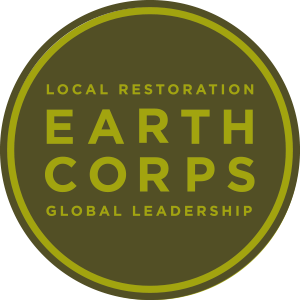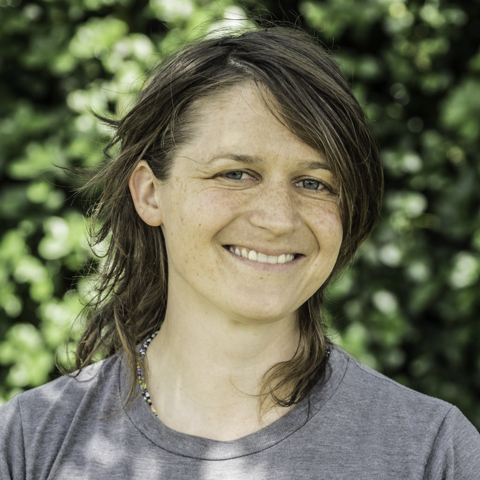A Global Movement to Restore Our Environment
Interview with Madeline de Mahy, Senior Project Manager
The United Nations General Assembly declared 2021-2030 the UN Decade on Ecosystem Restoration. The declaration aims to promote global efforts around ecosystem restoration as a way to address the climate crisis and improve food security, water supply, and biodiversity.
In September, on the heels of the UN’s 2019 Climate Summit, our very own, Madeline de Mahy, Senior Project Manager traveled to New York to represent EarthCorps at the Restore the Earth Global Landscapes (GFL) conference to launch a global movement focused on increasing restoration efforts of damaged ecosystems. Restoration is the process of recovering a damaged or hurt ecosystem to make it once again function as a healthy environment for surrounding animals, plants, and people.
A common theme shared at the conference focused on changing the narrative about climate change, from doom and hopelessness to one that is optimistic and helping people see the value of restoration. Madeline said it’s about creating a connection between people and nature – which is what she gets to do every day through her work at EarthCorps.
“it was invigorating to be with a bunch of people from around the globe who care about habitat restoration and share common values. It’s that feeling of oh my gosh! we all live far away but together we are all working towards the same goal and issues.”
Madeline de Mahy, EarthCorps
Madeline shared some of her favorite ‘aha’ moments from her trip with EarthCorps staff, “it was invigorating to be with a bunch of people from around the globe who care about habitat restoration and share common values. It’s that feeling of oh my gosh! – we all live far away but together we are all working towards the same goal and issues.” What resonated most with Madeline was her connection with the work being done locally in the Puget Sound region and across the globe to restore coastal wetlands, “it’s pretty cool to see that EarthCorps is also doing research on coastal wetlands and its benefits of reducing carbon pollution.” Research shows that restoring coastal wetlands can help with erosion damage and improve the overall water quality of local salmon habitats in the Puget Sound.
Another shared sentiment expressed at the conference emphasized the need to foster a culture of inclusivity, centering the role indigenous peoples and local communities are already playing to protect our planet and providing community-based solutions to fight climate change. It will take a community approach that involves government, corporations, and nonprofits all working together to combat the destructive effects on our environment.
It has been a joy for EarthCorps to be a part of this larger global movement on restoration. As we enter this decade of action we remain committed to restoring the health of our environment to create a better world for us all, starting right here in the Puget Sound region. We can’t do it alone. We invite you to join the global movement, invest in restoration efforts, volunteer to restore a local community park, and help strengthen relationships with local communities to restore our environment.


